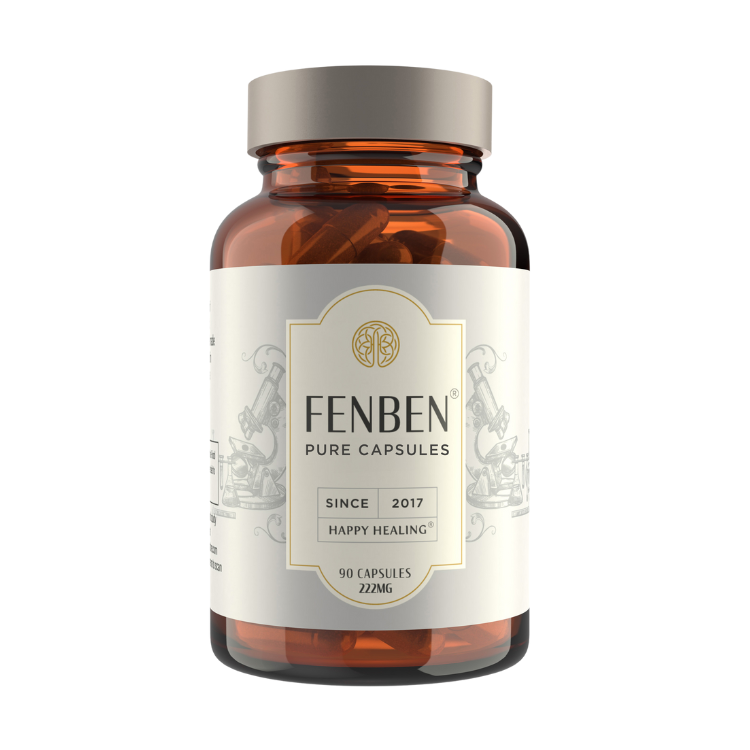fenbendazole vs Other Dewormers: Which is More Effective?
Comprehending the Advantages and Uses of Fenbendazole in Vet Medication
Fenbendazole has actually developed itself as a key anthelmintic in vet medication. Its capability to target numerous parasitic infections makes it a beneficial tool for veterinarians. The medication's device interrupts necessary cellular processes in parasites, resulting in reliable treatment outcomes. Its security account varies between types, requiring careful factor to consider in its use (fenbendazole 222). Comprehending these dynamics can clarify fenbendazole's more comprehensive ramifications in vet care and continuous study right into its possible past standard applications
System of Activity of Fenbendazole

Common Parasitic Infections Treated With Fenbendazole
A range of parasitical infections are properly treated with fenbendazole, making it a functional choice in veterinary medicine. This anthelmintic agent is particularly efficient versus nematodes, including roundworms and hookworms, which commonly impact pets and cats. It is likewise made use of for the therapy of cestodes, such as tapeworms, giving a broad range of activity versus both types of intestinal bloodsuckers. In addition, fenbendazole is helpful in managing infections triggered by protozoa, specifically Giardia, which can lead to intestinal distress in pets. Its efficiency prolongs to dealing with certain lungworms in pooches and felines, resolving respiratory system health and wellness worries connected to these bloodsuckers. Overall, fenbendazole's ability to target several parasitic species makes it a valuable tool in vet technique, ensuring the health and wellness of animals influenced by these usual infections.
Safety and security and Effectiveness in Different Animal Types
The security and efficacy of fenbendazole differ among various animal varieties, emphasizing the significance of species-specific factors to consider in vet medicine. In dogs, fenbendazole is usually well-tolerated and effective versus a variety of intestinal parasites, consisting of roundworms and hookworms. For felines, nonetheless, its use is less usual and might need cautious application as a result of potential unfavorable reactions.
In livestock, such as livestock and lamb, fenbendazole demonstrates effectiveness against various endoparasites, adding to enhanced health and wellness and productivity. Nonetheless, the pharmacokinetics and possible side effects can differ substantially in between varieties, demanding mindful examination by veterinarians.
Equines additionally respond favorably to fenbendazole, particularly for dealing with strongyles and ascarids, though dosage and administration routes have to be customized to their distinct physiology. Consequently, comprehending these distinctions is essential for enhancing therapy results and making certain pet welfare across varied types.
Administration and Dose Standards
Appropriate management and dosage standards are essential for making best use of the restorative effects of fenbendazole while decreasing prospective side effects. The dosage normally varies relying on the species being dealt with, the specific condition, and the formula of fenbendazole made use of. fenbendazole. For canines and pet cats, a typical dose is 50 mg/kg body weight, provided daily for three consecutive days, but veterinarians may change this based upon private wellness assessments
It is necessary to provide fenbendazole with food to improve absorption and decrease gastrointestinal distress. The medication is available in various forms, consisting of granules and paste, enabling flexible administration options. Checking the pet's feedback throughout and after therapy is advisable to validate efficiency and safety. Furthermore, veterinary support is vital to determine the appropriate duration of therapy based upon the click this site kind of parasitic infection being dealt with, ensuring perfect results for the animal's wellness.
Future Viewpoints and Research Study on Fenbendazole
Research study on fenbendazole remains to develop, concentrating on its prospective applications past standard antiparasitic uses. Recent studies have explored its effectiveness in treating numerous kinds of cancer cells, specifically in vet oncology. Initial information suggest that fenbendazole might prevent the growth of lump cells look at this now and enhance the impacts of various other chemotherapeutic agents.
Additionally, researchers are exploring its role in managing food poisonings in animals, highlighting its anti-inflammatory residential or commercial properties. The flexibility of fenbendazole for different varieties questions about its safety and security profiles and ideal dosing routines in varied populations.
As interest grows, there is a need for complete medical tests to establish evidence-based standards for these unique applications. Future research study may likewise examine the devices behind fenbendazole's results, possibly leading the way for innovative healing techniques in vet medicine. The recurring expedition of fenbendazole could greatly enhance therapy alternatives for different vet problems.

Often Asked Concerns
Is Fenbendazole Safe for Pregnant Animals?
The safety and security of fenbendazole for pregnant animals stays unsure. While some research studies recommend marginal danger, veterinarians usually suggest caution and usually discourage its usage while pregnant unless the benefits clearly surpass potential threats.
Can Fenbendazole Be Utilized in Animals?
Fenbendazole is typically used in animals to deal with numerous parasitic infections. 222 mg. Its efficiency versus intestinal worms makes it a you could try this out useful anthelmintic, adding to boosted wellness and efficiency in animals elevated for food and fiber
What Are the Adverse Effects of Fenbendazole?

The negative effects of fenbendazole may consist of gastrointestinal disturbances, sleepiness, and sensitive reactions. In unusual situations, extra serious reactions can happen, demanding mindful tracking and consultation with a veterinarian throughout treatment.
How Does Fenbendazole Contrast to Other Dewormers?
Fenbendazole supplies broad-spectrum efficiency against numerous parasites, often contrasting positively to other dewormers. Its one-of-a-kind mechanism targets different life stages, making it reliable, while typically presenting a favorable safety and security profile contrasted to choices available on the market.
Can Fenbendazole Be Made Use Of for Treating Cancer Cells in Pets?
The potential of fenbendazole in treating cancer in family pets has amassed interest. Initial research studies suggest it may inhibit cancer cells cell development, but even more research study is needed to confirm its effectiveness and safety and security in vet oncology.